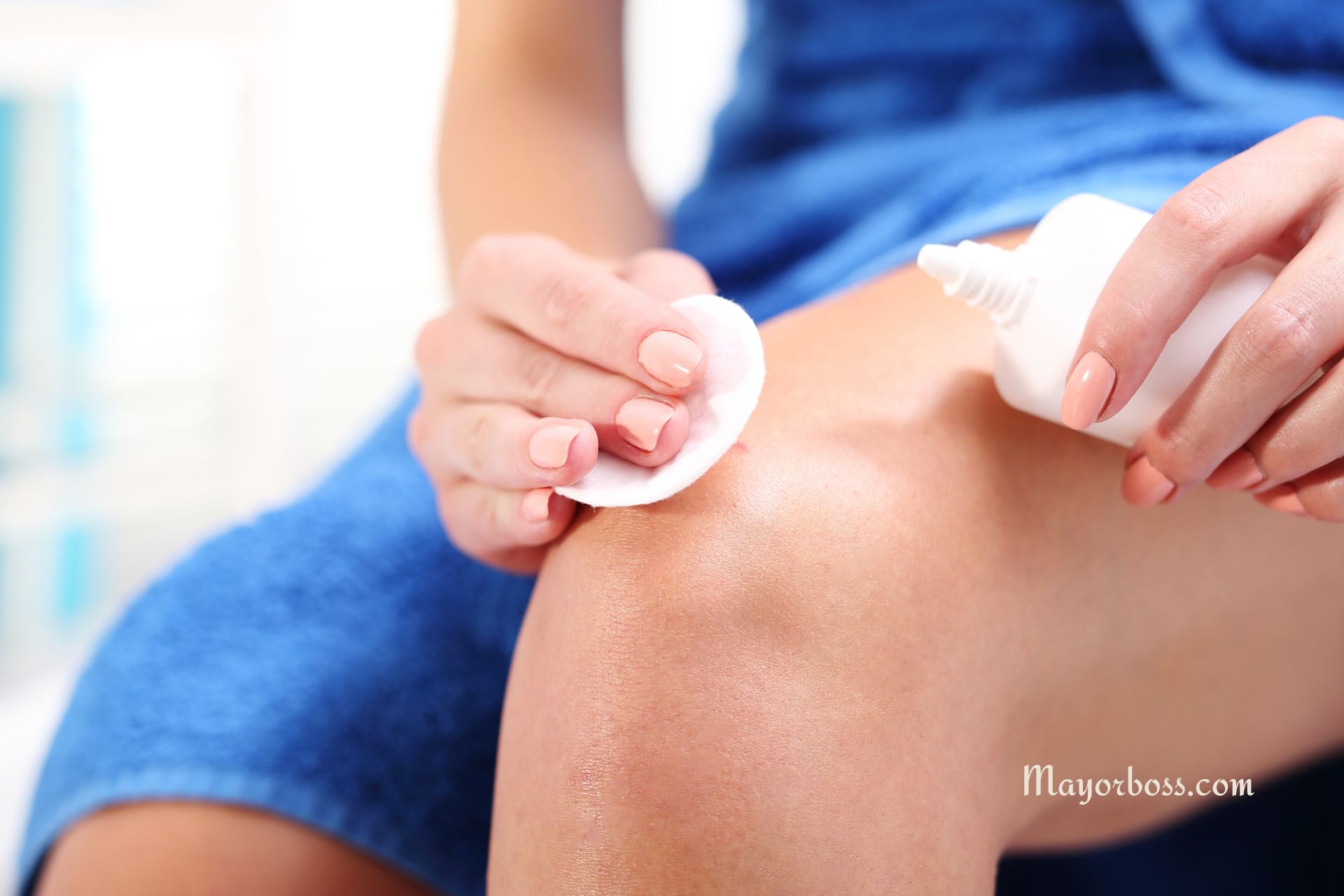Why Is My Skin White After Using Hydrogen Peroxide
If you’ve ever used hydrogen peroxide to clean a wound, you may have noticed your skin turning white in the area where it was applied. This temporary whitening effect might seem alarming, but there’s typically no reason for major concern. Let’s break down the science behind this phenomenon and discuss what you should know about using hydrogen peroxide safely.

What is Hydrogen Peroxide?
Hydrogen peroxide (H2O2) is a chemical compound commonly found in household products. It’s known for its antiseptic properties, meaning it can help kill germs and bacteria. Hydrogen peroxide is also a mild bleaching agent. Many hair and teeth-whitening products contain hydrogen peroxide as an ingredient.
Causes of White Skin After Using Hydrogen Peroxide
When you apply hydrogen peroxide to your skin, it breaks down into water and oxygen. The release of oxygen gas creates tiny bubbles that get trapped under the top layer of your skin. These bubbles are what cause the temporary whitening effect. The bubbles usually dissipate within a few minutes to an hour, and your skin will return to its normal color.
Is it Safe?
Using low concentrations of hydrogen peroxide (around 3%) on your skin is generally considered safe for short-term applications like cleaning cuts or scrapes. However, there are some important points to keep in mind:
- Concentration matters: Higher concentrations of hydrogen peroxide can cause skin irritation or even chemical burns.
- Not for wound healing: Though traditionally used to clean wounds, studies suggest hydrogen peroxide might actually slow the healing process by damaging healthy skin cells.
- Potential for sensitivity: Some people may be more sensitive to hydrogen peroxide, so always do a patch test on a small area of skin before wider use.
Should I Worry About the Whitening?
The temporary whitening effect is typically harmless, but pay attention to these situations where you should be a bit more cautious:
- Persistent whitening: If the whitening doesn’t disappear after a while, it could indicate a chemical burn or other skin damage.
- Pain or burning: These feelings, along with the whitening, likely point to skin irritation from the hydrogen peroxide.
- Repeated whitening: If the whitening effect happens repeatedly with hydrogen peroxide use, discontinue use and consult a doctor for alternative skincare solutions.
Frequently Asked Questions
1. How long does it take for the whitening to go away? The whitening should last for a few minutes to an hour at most. If it persists, stop using hydrogen peroxide and consult your doctor.
2. Can I use hydrogen peroxide for skin whitening? While hydrogen peroxide has mild bleaching properties, it’s not recommended for skin whitening. Using high-concentration or long-term hydrogen peroxide can damage your skin and lead to unwanted side effects.
3. Are there better alternatives to hydrogen peroxide for wound care? Plain water and gentle soaps are often the best and safest options for cleaning minor wounds. If you need a stronger antiseptic solution, consult your doctor for the right recommendations.
In Summary
The white discoloration you see after using hydrogen peroxide is usually no cause for worry. It’s a normal reaction caused by oxygen bubbles. However, always be mindful of the concentration of hydrogen peroxide you’re using. If you experience any discomfort, persistent whitening, or concerns about the use of hydrogen peroxide, consult a healthcare professional for advice.
